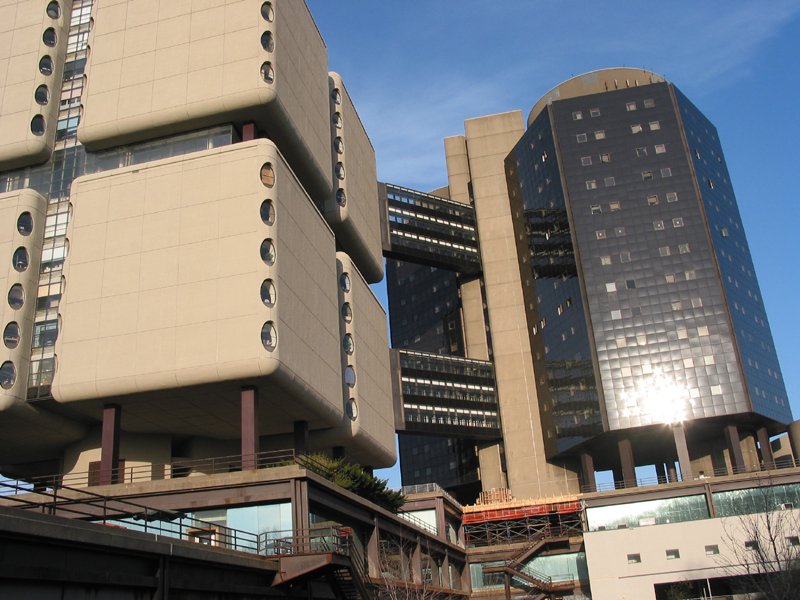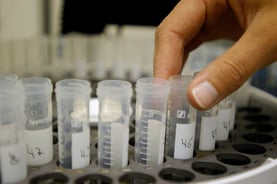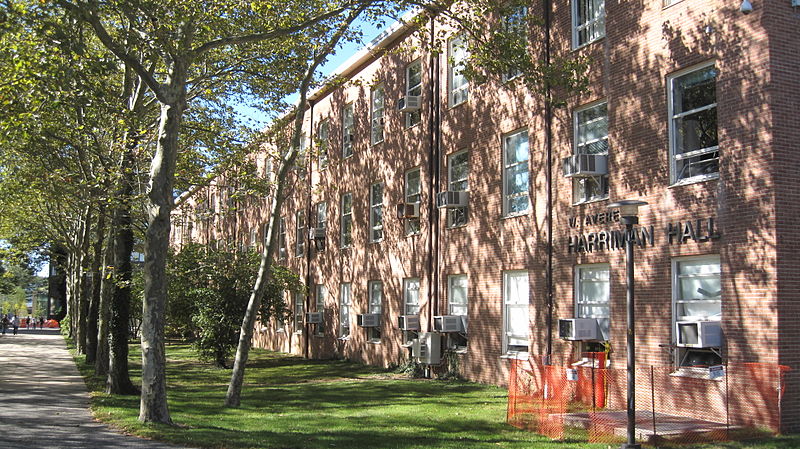 The brain is a fragile organ that can be damaged by different impacts to the head, including sports injuries or car crashes. Thousands of people arediagnosed with traumatic brain injuries (TBI) each year,stemming from different head impacts. The National Institute on Disability, Independent Living, and Rehabilitation Research (NIDILRR) awards 16 US institutions a TBI Model System grant each year to provide researchers and clinicians more opportunities to study these injuries.
The brain is a fragile organ that can be damaged by different impacts to the head, including sports injuries or car crashes. Thousands of people arediagnosed with traumatic brain injuries (TBI) each year,stemming from different head impacts. The National Institute on Disability, Independent Living, and Rehabilitation Research (NIDILRR) awards 16 US institutions a TBI Model System grant each year to provide researchers and clinicians more opportunities to study these injuries.
Tags: MSSM, BioResearch Product Faire Event, NY, Mt. Sinai, Icahn School of Medicine, 2018, Traumatic Brain Injury Research, nih research funding, NIDILRR
 There is so much that scientists have yet to learn about the universe, and understanding the matter that makes up the universe is a large task for scientists to undertake. Researchers at Stony Brook University will soon have new opportunities to increase their research thanks to a newly established research center.
There is so much that scientists have yet to learn about the universe, and understanding the matter that makes up the universe is a large task for scientists to undertake. Researchers at Stony Brook University will soon have new opportunities to increase their research thanks to a newly established research center.
Tags: Stony Brook University, Physics, BioResearch Product Faire Event, NY, Stony Brook, SunySB, New research center, 2017, nuclear research
Researchers from the Icahn School of Medicine at Mount Sinai have been awarded a grant of more than $9 million by the NIH to research the effects of environmental exposures on children’s long-term health. The grant is part of Environmental Influences on Child Health Outcomes (ECHO), a seven-year program that aims to understand the effects of environmental exposures on child health and development.
Read More
Tags: environmental contaminants, New York, Environment, NY, Northeast Region, Mt. Sinai, Icahn School of Medicine
The National Institute of Mental Health recently awarded a $2.3M Biobehavioral Research Award for Innovative New Scientists (BRAINS) grant to Dr. Matthew D. Lerner, an assistant professor in the Department of Psychology at Stony Brook University. The grant will provide funding for Dr. Lerner's project, “Optimizing Prediction of Social Deficits in Autism Spectrum Disorders,” a study which aims to help youth with autism overcome social challenges.
Tags: Stony Brook University, Autism, Research Funding, NY, Northeast Region, NIH grant, Stony Brook, BioResearch Product Faire™
Researchers at the Columbia University Medical Center (CUMC) may have found a way to reduce brain damage caused by a stroke or stroke-like event. In a study funded by the National Heart, Lung, and Blood Institute and the National Institute of Neurological Disorders and Stroke, 10-day-old mice that had an hypoxic (lack of oxygen) or ischemic (lack of blood) brain injury were treated with a fat emulsion containing either DHA or EPA—omega-3 fatty acids. The researchers evaluated the mice’s neurological function 24 hours and 8 to 9 weeks after the brain injury. They discovered that the mice treated with the DHA omega-3 fatty acids had a significant reduction in brain injury. This did not hold true for those treated with EPA-omega 3. The DHA group also had significantly better results in multiple brain functions during the 8 and 9 weeks evaluation compared to the EPA-treated mice and the control group which went untreated.
Read MoreTags: BioResearch Trade Show, New York, Columbia University, Columbia, NY, New York City, Columbia University Medical Center, biomedical researh, stroke, stroke research, DHA omega-3 fatty acids
 Since it's founding in 2006, the Herbert and Florence Irving Institute for Clinical and Translational Research at the Columbia University Medical Center, in partnership with the New York-Presbyterian Hospital in New York, has provided more than 2,000 scientists with new opportunities of conducting clinical and translational research leading to quicker developments and deliveries of treatments. Recently, the National Center for Advancing Translational Sciences (NCATS) awarded the Irving Institute a grant of $58.4 million over the next five years to help the Institute further the translational research being conducted.
Since it's founding in 2006, the Herbert and Florence Irving Institute for Clinical and Translational Research at the Columbia University Medical Center, in partnership with the New York-Presbyterian Hospital in New York, has provided more than 2,000 scientists with new opportunities of conducting clinical and translational research leading to quicker developments and deliveries of treatments. Recently, the National Center for Advancing Translational Sciences (NCATS) awarded the Irving Institute a grant of $58.4 million over the next five years to help the Institute further the translational research being conducted.
Tags: Columbia University, Columbia, NY, NIH grant, new funding, 2016, BioResearch Product Faire, Irving Institute, Clinical and Translational Research
Rockefeller University is currently experiencing one of the largest phases of research expansion in its modern history. To accommodate for its expanding research capabilities as a competitive institution, Rockefeller University officials have already begun implementing changes to grow the campus and construct new research buildings and institutes all together.
Read MoreTags: Rockefeller University, new research building, New research facilities, New York, RockU, NY, 2016
New York's Columbia University is nearing the completion of an ambitious building project more than three years in the making. Columbia University Medical Center (CUMC) will open its new state-of-the-art building this August. Work began on this 100,000 square-foot, fourteen-story glass tower in September of 2013 thanks in large part due to a financial gift from Dr. Roy Vagelos and his wife Diana. So it seems fitting that the building will be named the Vagelos Education Center.
(Image Courtesy of Wikimedia Commns & Beraldoleal)
Read More
Tags: Medical Center, Biotech Event, New York, Columbia University, East Coast, Columbia, Biotechnology Vendor Fair, NY, New York City, Columbia University Medical Center, new Building, NYColumbia University, 2016, Medical equipment

(Image courtesy of Wikimedia Commons)
Anti-fungal research at New York's Stony Brook University earned $6 million in grants from the National Institute of Health. Dr. Maurizio del Poeta’s breakthrough in attacking deadly fungus came from a recent research project that yielded an unexpected result that might lead to a vaccine. He and his team were searching for a gene that would metabolize a fungal sphingolipid. Instead, the gene he mutated caused mice that were exposed to it to become resistant to fungal infections. In an article on the Stony Brook University’s news site, Dr. Poeta said , “We think that this discovery will open the road to a new vaccination strategy against fungi.”
Read MoreTags: Northeast, New York, Stony Brook University, East Coast, NY, NIH grant, new research grant, SunySB, Fungal Infections, BioResearch Product Faire™, BioResearch Product Faire, NIH awards 2017, 2017 research funding
 Neuroscience and genetics are two important topics life scientists are consistently studying. Researchers from UC Davis found a promising treatment for Huntington's Disease, while UC San Francisco was awarded $185 million to build a new neuroscience research institute. Recently on the East Coast, a team of researchers from the Columbia University Medical Center discovered a new neurodevelopmental syndrome as well as the genetic makeup of the mutations that cause the syndrome. (Image courtesy of Allen Ajifo via Wikimedia Commons)
Neuroscience and genetics are two important topics life scientists are consistently studying. Researchers from UC Davis found a promising treatment for Huntington's Disease, while UC San Francisco was awarded $185 million to build a new neuroscience research institute. Recently on the East Coast, a team of researchers from the Columbia University Medical Center discovered a new neurodevelopmental syndrome as well as the genetic makeup of the mutations that cause the syndrome. (Image courtesy of Allen Ajifo via Wikimedia Commons)
Tags: Northeast, Columbia University, Neuroscience, Columbia, Genetics, Neurology, NY, Columbia University Medical Center, 2016, BioResearch Product Faire, neurodevelopmental syndrome


